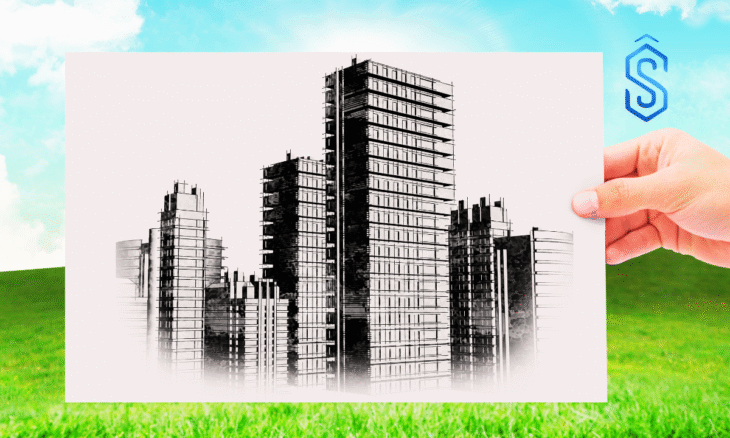Mumbai: The affordable housing sector in India is under growing strain as construction costs have risen by nearly 40% in the last five years, significantly impacting project launches and sales.
According to ANAROCK Research, the supply share of affordable housing has dropped from 40% in 2019 to just 12% in the first half of 2025, reflecting the mounting cost burden on developers and the affordability crisis for homebuyers.
Affordable Housing Construction Costs Escalate in Metro Cities
Mumbai, Delhi NCR, and Bangalore remain among the most expensive cities for construction. Luxury housing costs have crossed ₹5,000 per sq. ft in Mumbai and other metros, while affordable housing projects average between ₹1,500–₹2,000 per sq. ft. Mid-range housing typically costs ₹2,000–₹2,800 per sq. ft, with luxury projects ranging between ₹3,000–₹5,000 per sq. ft.
Also Read: Real Estate Micro Markets See Up to 139 Per Cent Capital Growth and 81 Per Cent Rental Surge
The sharpest increase has been observed in labour expenses, which have risen by 25% in the last year and nearly 150% since 2019. Rising costs of raw materials such as steel, copper, and aluminium, coupled with higher logistics, compliance, and overhead expenses, have further strained project budgets.
Impact on Affordable Housing Demand and Developer Margins
Developers in the affordable housing segment are disproportionately impacted, as their margins remain thinner compared to mid and luxury segments. Even a ₹500–₹800 per sq. ft cost increase translates into a ₹5 lakh burden for buyers, drastically affecting affordability.
As a result, many smaller developers have slowed down launches, while larger players in the luxury segment continue to absorb costs due to higher margins. The decline in affordable housing launches—from 40% in 2019 to 12% in H1 2025—mirrors the shrinking sales share, which has dropped from 38% to 18% in the same period.
Tariffs, GST Reforms and Market Outlook for Affordable Housing
If proposed tariffs on imported construction materials are implemented, project costs may rise by 1.5–2.5% under a 25% tariff scenario, and over 5% if tariffs reach 50%.
Also Read: Interio Partners with Real Estate Developers to Offer Ready-to-Furnish Flat Solutions
This could delay projects that rely heavily on imports, particularly in the luxury and commercial segments, while further eroding affordability in the affordable and mid-income housing markets.
On the positive side, proposed GST reforms reducing the cement rate from 28% to 18% could lower overall construction costs. Experts suggest this may reduce affordable housing prices by 2–4%, mid-segment housing by 2–3%, while luxury projects may see limited relief.
Affordable Housing Sector Outlook
The surge in construction costs, coupled with inflation, global supply chain disruptions, and regulatory delays, continues to weigh heavily on the affordable housing sector.
Unless government incentives, local sourcing strategies, and tax reforms materialize, affordability challenges may persist, affecting both developers and end-buyers in the coming years.










